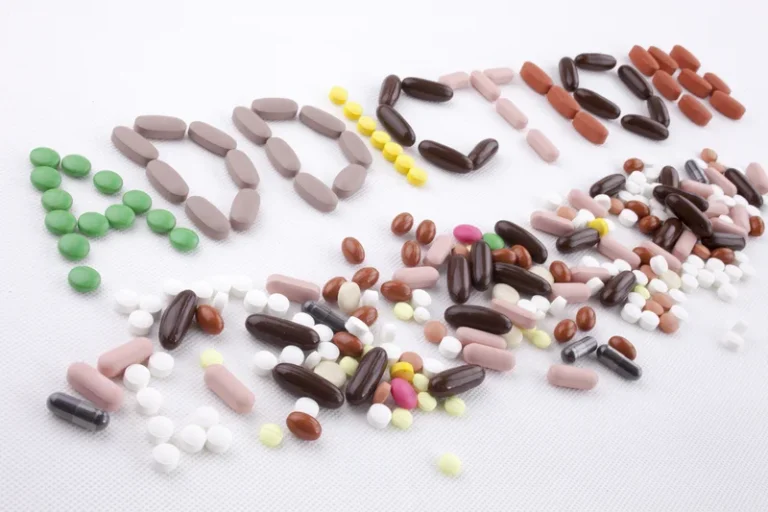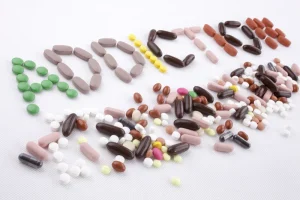
We’ll not only offer guidance but also listen to your story and help to ease any fears. But if you’re living with addiction, you don’t have to deny yourself the help you deserve just because you’re unsure about what to expect. In fact, there are several things you can do to get ready for rehab to help you mentally and emotionally prepare for treatment and allow you to focus on your recovery while there. Take our free, 5-minute substance use self-assessment below if you think you or someone you love might be struggling with substance misuse. The evaluation consists of 11 yes or no questions that are intended to be used as an informational tool to assess the severity and probability of a substance use disorder.

Take Our Substance Use Self-Assessment
- Going to rehab can show that a person is committed to changing, and help to re-build bridges that were once burned with loved ones.
- Right now, you might be on what feels like a never-ending Ferris wheel of using and quitting, using, and quitting, and so on.
- As long as someone that expensing a relapse recognizes the lapse, taking action, returning to rehab, and adjusting their recovery plan is key and can lead to long-term sobriety.
- Breathing exercises and meditation (as mentioned above) are a great start.
- Your treatment team can help you decide whether inpatient, outpatient, or other treatment options are more appropriate for you.
Rehabilitation is an opportunity to transform one’s life by adopting new perspectives. A shift in perspective is a critical component of the recovery journey, offering fresh insights and strategies to cope with life’s challenges. Psychological research underscores the importance of reframing our thoughts and attitudes to facilitate personal growth and well-being. While this strategy is commonly used in business and project management, its principles are relevant to addiction treatment as well.
After Rehab, What Does Recovery Look Like?
- Relapse doesn’t mean the treatment program didn’t work — it simply means the treatment plan needs reinforcement or adjustment.
- Sometimes, a friend or loved one can temporarily assume some of your responsibilities.
- Healthy self-esteem can drive motivation, self-efficacy, and self-control, which are essential in overcoming addiction.
- It’s critical to figure out who will handle your obligations before going to rehab.
If you’re not sure which rehab center is best for you, “How to Choose a Rehab Facility” provides a list of several factors to consider. Withdrawal from some substances such as alcohol and benzodiazepines can be potentially dangerous. American Addiction Centers (AAC) can guide you through the entire process, from finding a suitable treatment program to answering questions and preparing you to going back to rehab enter rehab.
What Medspa Treatments Actually Boost Your Mental Health—and Why You Should Try Them
Even if you have already been to treatment, it does not mean that you cannot go back. It just means that your treatment regime must be revisited and re-worked, based on your evolving needs. It takes a significant time commitment to recover from addiction in an inpatient facility. Spending weeks or months at the institution might have an influence on job, family responsibilities, and personal interests, creating difficulties when reintegrating into regular life. Addiction recovery is a multifaceted process that affects the mind, body, and soul.
Things To Consider When Going Back To Rehab
Sharing experiences, challenges, and successes with others who are on a similar path can create a sense of belonging and reduce feelings of isolation. For many, they think it’s something that people like them don’t visit, either saved for rockstars or people at their lowest ebb. Others see rehab as a place to be fearful of and put up some form of resistance. The truth is though, that for anyone who is abusing the likes of alcohol or drugs, in the many forms that abuse can take, they need addiction treatment. Long-term recovery from addiction is a complex and ongoing process, with relapse prevention being a cornerstone of sustained sobriety. A relapse prevention plan is a personalized strategy that identifies potential triggers, outlines coping mechanisms, and establishes a support system essential for maintaining long-term recovery.
- This kind of setback does not signal the end of the road to recovery, even if professional rehabilitation has already been attempted in the past.
- A lapse is a temporary, often one-time, return to prior drug-use behavior, whereas a relapse is a “full-blown” return to drug or alcohol use after an attempt to quit.
- The amount of time you spend in treatment can vary, and utility bills, car notes, rent, the mortgage, and tuition won’t stop while you’re gone.
What Are My Treatment Options After a Relapse?
Knowing how to respond if a relapse happens is also incredibly important when it comes to maintaining long-term recovery. A lot of addicts in recovery do not feel deserving of a sober life. Once they finally get to a place where they are not relying on drugs or alcohol, they feel undeserving of successfully coming out on the other side. Sometimes, you unknowingly begin taking steps toward a relapse weeks or months before actually drinking or using drugs.
The goal of rehabilitation is to help those with alcohol addictions find their way back to a productive, functioning life. By counteracting addiction’s powerful disruptive effects on the brain and overall behavior, those struggling with an AUD can one day return to their family, workplace, and community. Those who receive treatment are likely to decrease their chances of participating in criminal activity and improve the occupational, social, and psychological aspects of their life.
- This is because of the changes that occur in the body once you stop using substances.
- Different types of treatment programs offer various levels of care to meet you where you are in your recovery process.
- If you feel your motivation waning as time passes, it might be time to return to rehab.
Inpatient Rehab in a Nutshell

Eating a single piece of pizza, for instance, would be considered a lapse. Gaining 35 pounds during the course of dieting from a continued poor diet, would be considered a relapse. In order to determine if you should return to rehab, it is first important to fully understand relapse and the dangers it presents.
Getting into treatment is easy with our free insurance verification
What former clients have to say, via personal recommendations and testimonials, can speak volumes about the facility, its staff, the treatment, and the overall experience. A better approach, however, involves judging the actual quality of care a facility provides—during and after the formal treatment period. Boundaries help set expectations within a relationship to allow you and your loved one to feel safe, comfortable, and respected while still being able to provide support.11 Boundaries help keep relationships intact. If you’ve made it this far, it’s probably likely that niggling voice in the back of your head is whispering that you do, in fact, need help.

Should I Go Back To Rehab After A Drug Or Alcohol Relapse?

Different types of treatment programs offer various levels of care to meet you where you are in your recovery process. If you have already completed a treatment program, you can reach out to your former (or current) treatment providers, such as your therapist, psychiatrist, or medical doctor to get their advice on the next step to take. We have a full range of treatment options, including medical detox, inpatient care, partial hospitalization programming, and intensive outpatient services. We offer a state-of-the-art inpatient facility and have specialized options for trauma, including EMDR and a specialty track for veterans and first responders. If you or a loved one are ready to begin the journey toward a substance-free life, we’re standing by to take your call. Reach out to our Recovery Advocates to learn more about our treatment programs and find a plan that works well for your specific needs and situation.